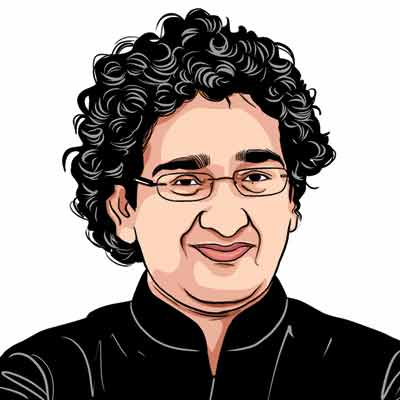Opinion Everybody loves a good riot
If the Liberhan Commissions recommendations on religion and politics read like a Miss World speech,so does the hurriedly prepared Action Taken Report.
If the Liberhan Commissions recommendations on religion and politics read like a Miss World speech,so does the hurriedly prepared Action Taken Report. The ATR,tabled in Parliament by the Central government on Tuesday,is couched in general terms. The one concrete proposal refers to the Communal Violence Bill, languishing in Parliament since 2005. The reference is meant to reassure. For,when confronted with the complex web of systems that failed on December 6,1992,surely the first step is to enact a preventive law.
The Communal Violence (Prevention,Control and Rehabilitation of Victims) Bill beefs up powers of preventive detention,punishment and rehabilitation in case of a riot. But its key feature is to strengthen the hands of the central government. In India,law and order is a state subject,and communal violence,like other acts of arson,are the exclusive responsibility of the state. Section 55 of the Communal Violence Bill seeks to change this. It empowers the Centre to unilaterally declare an area as communally disturbed,and arguably take over civil administration. Currently,the only way the Centre can do this is by declaring a state emergency under article 356 of the Constitution. In the era of coalition politics this is difficult. And since the Supreme Court pronouncements in S.R. Bommai and Rameshwar Thakur,even the judiciary may not play ball. The Communal Violence Bill is 356-lite; the Centre can take over parts of a state,without the checks and balances that declaring an emergency triggers.
The Congress-led Central governments claim that the Bill is a response to the demolition of Babri Masjid plays into its own version of what happened that fateful evening of December 6. The Congress narrative on Babri Masjid is that: (a) The BJP state government was entirely to blame; (b) the only way the Narasimha Rao central government could have intervened was by imposing article 356. In his book Ayodhya,6 December 1992,then-Prime Minister Narasimha Rao answers the specific accusation of Why was article 356 not invoked?. He argues that article 356 requires a recommendation from the governor,who,in this case advised that the time is not ripe for taking any drastic step like the imposition of Presidents rule. Faced with this,there was little that Rao could do. The implicitation being: If the Centre had the power,it would have acted.
Really? India has a fine tradition of state governors safeguarding central government interests. The governor of Uttar Pradesh at the time was B.S.N. Reddy,a former Telugu Desam MP who had been jailed by the Congress during the Emergency. But he served at the pleasure of the President,which in non-legalese translation means that he could be fired at the prime ministers will. Even if Governor Reddy had a mind of his own,Narasimha Rao could have replaced him with a more pliant governor. The Communal Violence Bill empowers the Centre on the assumption that it is more willing to control a riot than the state is. That assumption did not hold in Ayodhya.
In fact,the Communal Violence Bill would have been irrelevant in the Gujarat of 2002,or Bombay of 1992-93. In Gujarat,the state and Centre were both run by the BJP. What was the chance that the BJP central government would have taken over Ahmedabad or Surat? And if they had,would it have made any difference? Ditto for the Bombay of 1992-93. The Congress ruled both Centre and state. Yet more than 1200 people were estimated murdered.
A law motivated by politics is likely to be opposed by those very impulses. The Communal Violence Bill has met with vociferous protests from the Opposition,who accuse it,not unreasonably,of diluting Indias federal character. Even its other provisions are hotly contested. For instance,the Bill increases punishment for offenders. But with the number of people convicted under the existing laws close to zero,increasing the sentence is neither here nor there. The Bill also allows for preventive detention,which is anyway permitted under existing laws such as the National Security Act.
The absurdity of the Communal Violence Bill must be seen in the context of a more basic problem: the framing of a political question as a legal one. Politicians cannot outsource their job to commissions and courts. 17 years and 48 extensions were not enough for Justice Liberhan to bring about consensus on the facts that led up to the destruction of the Babri Masjid. And even the most sophisticated statutes (the Communal Violence Bill is hardly that) cannot work unless accompanied by political will. No law on earth can guarantee that.
vinay.sitapati@expressindia.com




